How Hulu’s ‘Monsterland’ Expertly Tells the Horror of Internet Conspiracy Groups
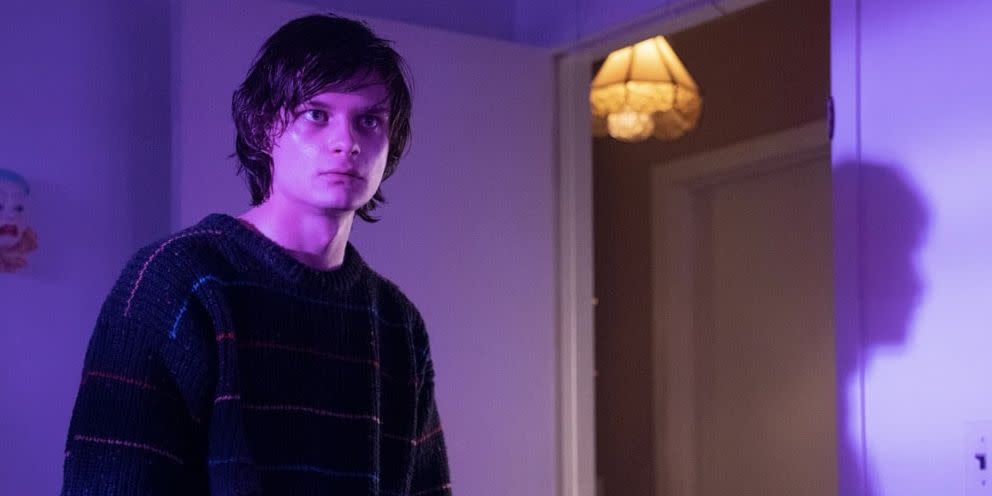
Spoiler warning: the following story discusses the entire episode, including the ending, of "Eugene, Oregon" from Hulu's Monsterland.
The second episode of Hulu's horror anthology series, Monsterland, explores the dangers of internet conspiracy groups and radicalization.
Titled "Eugene, Oregon," the episode follows a teenage boy, Nick, who cares for his ill mother and shoulders much of his family's hardships, financial and otherwise.
Here's how we can interpret the episode and its ending.
Just in time for Halloween, Hulu's new horror anthology series Monsterland is here to bring all the creepy, scary goodness you can fit into a 50-minute package. Done in the style of Netflix's sci-fi megahit Black Mirror, each episode of Monsterland takes place in a different city, focused on different types of monsters, both human and not human. Embedded within each episode's horror story also comes a layer of social commentary, explaining what can drive humans to do real-world monstrous things that we see and hear about with sometimes alarming frequency.
The second episode in the series, titled "Eugene, Oregon," is ostensibly about shadow monsters. The protagonist of the episode is a boy named Nick (played by Ozark star Charlie Tahan), who lives an extremely troubled life—he's about a year removed from his mother suffering a crippling stroke, rendering her unable to work. He's dropped out of school to work a fast food job for any attempt to make ends meat, and his health insurance no longer covers the medication that his ailing mother desperately needs.
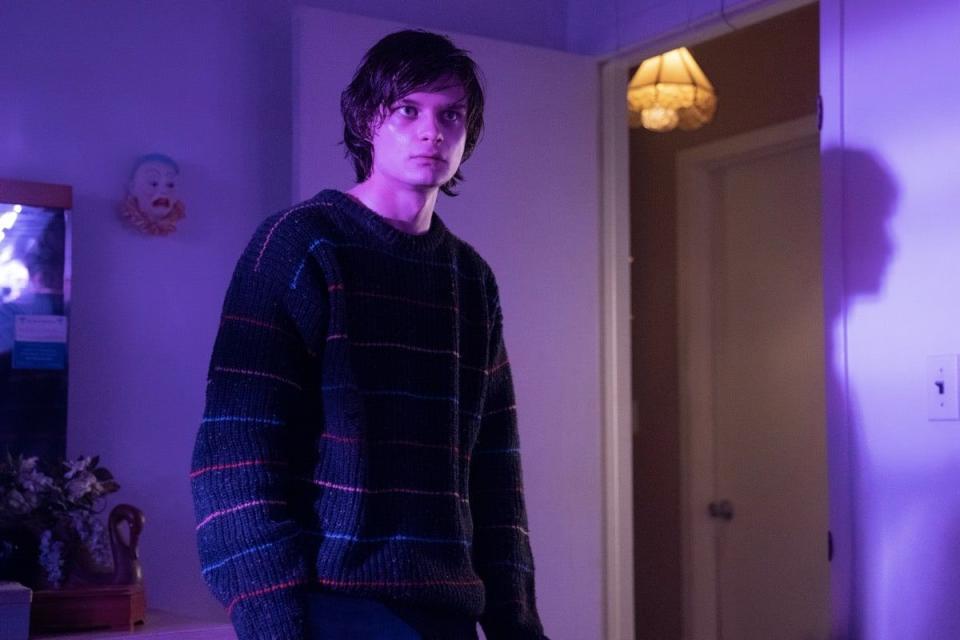
So when he sees a living shadow in his room, he doesn't know what to make of it. We know he's tied to a virtual life—he gets his joy from gaming online and video-chatting with others. The shadow does nothing more than simply make him aware that it does, in fact, exist. When he puts up a hand puppet in the shape of a duck, the shadow person mimics his duck. It's only when Nick snaps a photo of the shadow person and posts it on the show's Reddit stand-in site that things take a turn for the much, much worse.
“We were all very concerned with the sort of growing power of the internet and the way that it can infiltrate the lives of these really vulnerable young people, especially really vulnerable young men,” Monsterland showrunner Mary Laws told the LA Times. But “we didn’t necessarily want to investigate a shooter and try to understand them. That’s not by any stretch the point of the episode.”
What happened at the end of "Eugene, Oregon"?
Given how abstractly the episode concludes, there's no real definitive answer to the question of what happened at the end—we're meant to interpret it ourselves. And in a lot of ways, it doesn't matter—we saw Nick's radicalization in front of our eyes, whether we realized what was happening or not. Part of what the episode does well is show how glacial, and incremental such a process can be. Someone getting involved with a dangerous online community isn't necessarily going to have red flags all the time right away from the beginning. Someone can be eased in, and semantics can be used, and it can be unclear even to the user what exactly they're getting into.
What's abundantly clear is one thing: Nick didn't have a problem with this shadow person until he met the online Shadowhunter community. It was in his room, and it existed, but it was doing nothing more to him. But the more time he spent online, the more he was able to create this narrative in his mind—that everything bad that happened in his life was the shadow's doing, and the shadow's fault—that wasn't reflected by anything that was actually there.
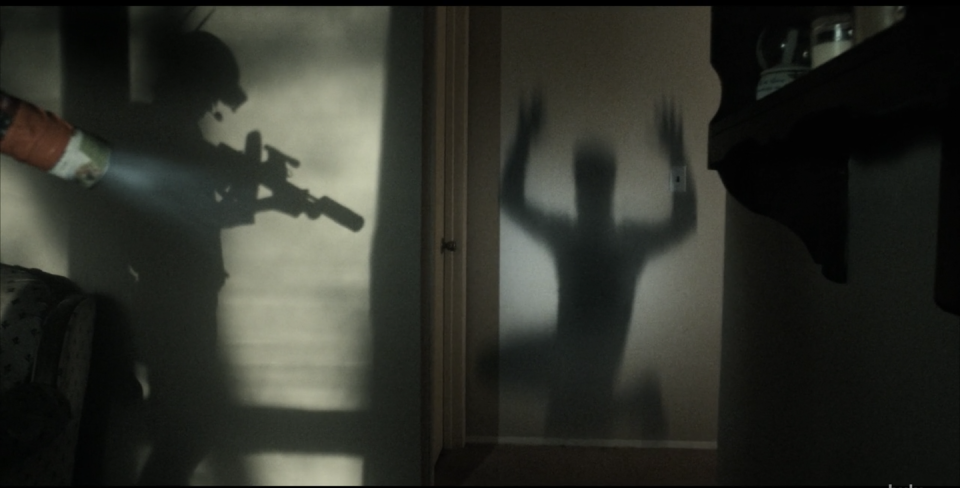
And so while this episode did contain a sentient shadow living in someone's home, the real monster is far scarier in a real-world sort of way, because it can occur without people even realizing. Throughout the episode, Nick went from a nice-but-lonely kid, coping with an absent father and a sick mother to someone blaming all of his problems elsewhere—just because other people on the internet told him to.
We've been conditioned through watching horror films and television for years to always think the monster, or the creature, is doing something wrong. And that might be initially where your gut goes—but Monsterland wants to make you think more than that. Nothing we see from the shadow is anything close to sinister—it's just... existing, and then running from the uninvited conflict that Nick eventually brings.
At the very conclusion of the episode, after the other members of the online community have convinced Nick to basically hunt the shadow down with a makeshift "light gun," we see his hunt, and we hear the cries of his confused mother. In the episode's closing moments, the shadow surrenders—hands in the air, kneeling on the ground, begging to be spared. We hear gunshots as the episode ends, and the credits begin to roll.
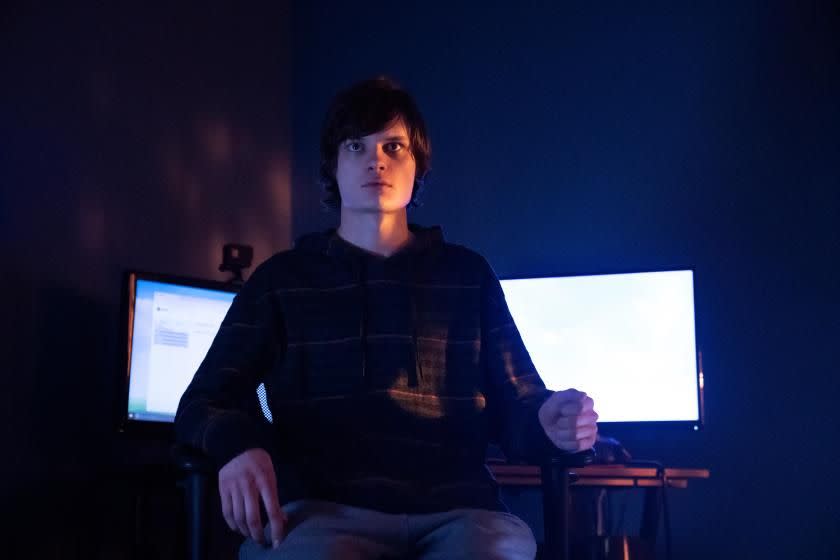
Given what we've seen all episode—not really knowing what was in reality and what was said on the Reddit surrogate—the gunshot makes for some major questions. Was his "gun" really just a modified flashlight? Or did he actually pick up a gun and do something worse, perhaps mistakenly unloading on his mother or perhaps himself?
Again, what actually happened isn't really what matters here. What matters, in fact, is what we saw happen throughout the course of the episode. Nick went from someone frustrated with a broken system—kids who are mean to him for no reason, a health care system that doesn't allow him to properly care for his mother—to someone with an unjust grudge, and willing to take action.

“As Nick’s character becomes indoctrinated into this radicalized perspective, the shadow takes on a more menacing tone,” Kevin Phillips, who directed the episode, said in the LA Times piece. “I think that is a great metaphor for how this type of stuff works. The more one is radicalized into a certain type of thought, the more polarized their perspective becomes; the things that would otherwise be gentle or benign or harmless all of a sudden kind of skew in a different way for them.”
From "larger picture" conspiracies—the online group mentions a presidential candidate saying the word "shadow" several times during a debate and convincing themselves it was a message—to intimate connections, like the concept of romance and brotherhood, the episode shows different methods, too, that online groups can take to push people towards these ends.
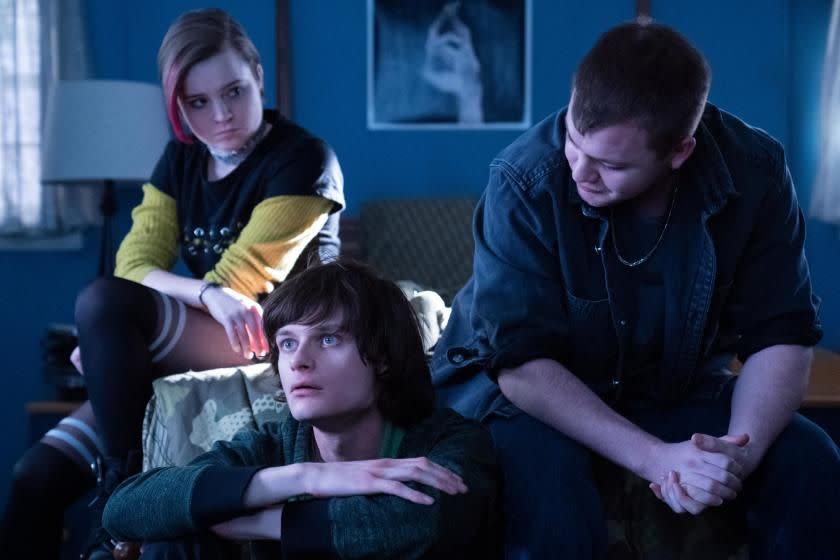
The way the episode explores these terrifying themes throughout the episode is marvelously done; while it's scary to realize that the Shadow serves as a stand-in for any sort of marginalized group that might be a target of conspiracy and hate in real life, the way the show explores the themes and process is clever and well done. It's not glorifying a shooter or someone violent—all we're seeing on screen is a kid hunting down a shadow. But we know all too well what it all stands for.
By the end of the episode, it's clear that the world has taken its toll on Nick. From things out of his hands to the bad influences who have gotten their (virtual) hands on his vulnerable mind, he's been changed.
“We kept saying ‘We can’t let him off the hook,’” Laws said. “And I don’t think we do.”
You Might Also Like

